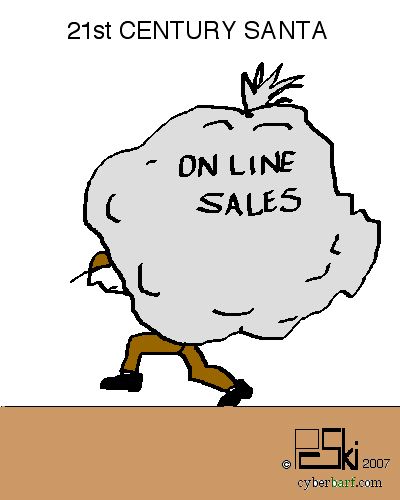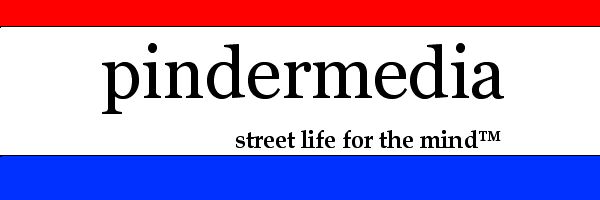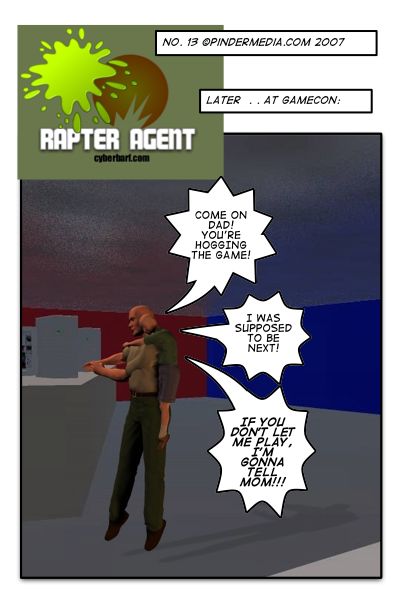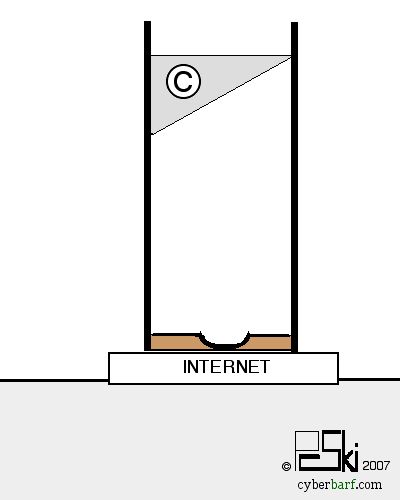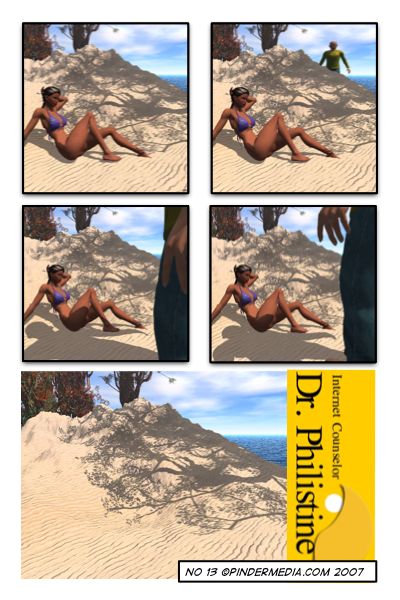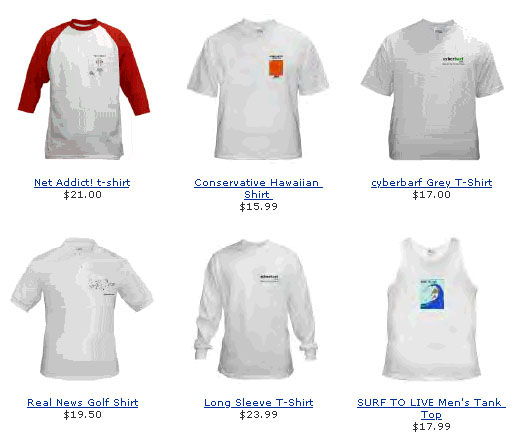IN THIS ISSUE:FREEBIESiTOON on 21st Century SantacyberSAFARIRAPTER AGENTiTOON on the GallowsTHE WHETHER REPORTDR. PHILISTINECYNSATIONAL
|
 |
SkiHenge by ©Ski 2007
FREEBIES TREND
If you are looking for information, if you look long enough, you can find just about anything you want for free. “Free” content is the unwritten rule for dedicated web surfers. Like their real world beach bums, nobody owns the waves, man!
Further comparisons to the surf is appropriate. The Earth's oceans are the planet's largest geophysical structure. The oceans cover most of the planet. It is the least explored aspect of human discovery. It is a dangerous and mystical boundary that has been the source for poets, adventurers, painters and pirates. No one person or organization can claim control over the high seas.
The infrastructure called the world wide web is the largest communication distribution system in the world. At any point in time, a person from India, a person from Germany, a person from Australia can open this home page; they can open a chat room link and text directly in near real time. Just like the sovereigns can control the beaches and three miles from shore, once a net surfer puts his or her boat packet of bytes into the broadband waves, he is traveling freely on the digital seas. He charts his own course. He is free to voyage to places that interest him alone. No tolls or permits required. It is like the internet is turning into this century's Stonehenge, where pagan travelers come to gawk at the creation of a structure.
When one has total freedom of choice when navigating on uncharted waters, there is a risk and reward. Free information v. subscription content. Free is not always credible. Subscription news sites should filter and cross check facts before publication. Free images v. Copyrighted images. Even images with a © symbol appear to be fair game to be cut or pasted into some other page or report. The concept of being free can hinder artist's from publishing their work on the net for fear that it will be unfairly used without compensation. Then everyone loses the opportunity to experience new content.
The ease of manipulating free content is having a negative effect in schools. The experience of reading and researching a school paper is also being lost. A student can quickly search a book title or author on wiki, and cut and paste a review into his word processor without reading a page of the actual text. Educators will say that reading is the most fundamental concept in the development of the mind. It is the tool that connects the brain receptors and trains a person to apply knowledge to new circumstances. The temptation to cheat on a paper is present, but in the end the student is probably cheating himself.
There is a discussion that the plight of the newspaper industry was self imposed; the theory is that the newspaper publishers have been giving away their news basically for free (subscriptions being nominal per day) in order to get advertising dollars tied to circulation. When the advertisers moved to the Internet and other means of marketing, the newspapers could not off-set that loss of income with the other revenue source (the traditional low cost readership subscription fees). In addition, readers can now surf the net and get the news for free without buying a hard copy of the paper.
The next generation is getting a habitual diet of free content. It is becoming dependent on the expectation that what they want they should get for free. A capitalistic society does not operate in that manner. Your work is to be rewarded and compensated. This is not to say that people may not get creative in how they capitalize on their work. In 2007, the band Radiohead released their new album on the net with no strings attached; if fans liked it, they could pay whatever they wanted for it. Approximately 40 percent of the downloaders paid for their copy of the album, and the band collected about $3 million. Now, if the LP had been released in the conventional record label manner, the band would have had to sell more than 3 million copies to generate $3 million in band revenue, less expenses. But since Radiohead owned the master recording, it did not need a label or anyone's permission to distribute it. As the copyright holder, it could determine whatever price it wanted to charge, if any, for its music. In the long run, the band probably made more money in distributing their product in this hybrid manner than through a record label. But on the flip side, a majority of listeners did not pay a dime for their music. Sixty percent is a staggering number of people who believed they should not morally pay something for owning a copy of a musician's work. If this attitude continues to grow, this generation may get offended when others don't value their contributions to society, their work product, in the same light as their Napster-like entertainment choices. Even Freebies come with a cost.
iToon
